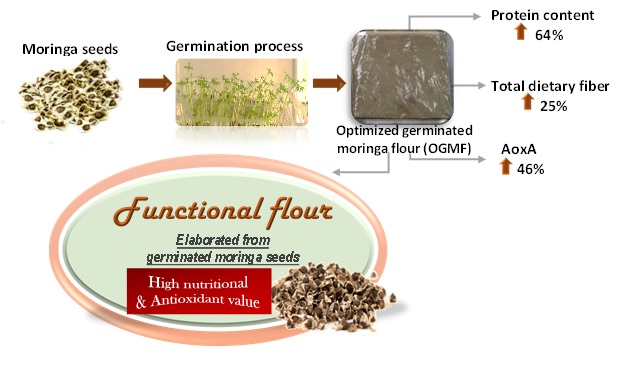 |
|
The object of the present research was to identify optimal germination conditions for moringa seeds to facilitate the production of a functional flour with maximum values of protein content (PC), antioxidant activity (AoxA), total phenolic (TPC), and a minimum dry weight (dw) lipid content (CL) of 20%. Response surface methodology was applied to these four quality characteristics. A central composite rotatable (CCR) experimental design with two factors [Germination temperature (GT, 25-40°C)/Germination time (Gt, 25-360 h)] in 5 levels was used (13 treatments). The prediction models developed for each response variable showed high coefficients of determination, demonstrating their adequacy to explain the variations in experimental data. The germination bioprocess at optimal conditions increased PC, AoxA, and TPC, polyunsaturated fatty acids, and amino acids content, and decreased LC concerning the entire seed. Germination is an effective strategy to increase the TPC of moringa seeds for enhancing functionality with improved antioxidant activity.
Keywords: moringa seeds, antioxidant activity, germination, optimization.
|
|
 |

